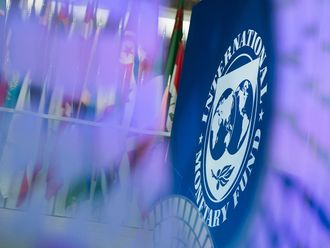Dubai: Most banks in the UAE have stopped money transfers there after the latest round of sanctions on the country, bankers said on Sunday.
A Dubai-based Iranian businessman claimed that the latest sanctions have halved trade with Dubai, an important re-export centre for Iranian goods.
"We stopped transfers to Iran in all currencies in July," an executive from an international bank, who spoke on condition of anonymity, said.
A banker said that transfers to Iran in dollars and euros are now forbidden, and have become "very difficult, if not impossible, in dirhams".
"Transactions by Iranian clients are closely monitored," the banker said, adding that certain activities by Iranian clients, such as transfers to Asia to purchase goods, are sometimes blocked.
Accounts closed
"We used to deal with some banks in Tehran, but now it is almost impossible," the banker said.
Bank accounts of some Iranian clients have been closed recently, he added.
"The volume of trade between Dubai and Iran has been reduced by 50 per cent compared to before the latest round of sanctions, mainly due to bank restrictions," said Morteza Masoumzadeh, vice-president of the Iranian Business Council in Dubai.
"There are more restrictions, and things are getting more complicated" because of the latest sanctions, he said.
"For example, businessmen can no longer "open a letter of credit to overseas suppliers if the port of discharge is an Iranian port", he added. UAE officials said last month that the country has begun taking steps to implement the latest UN sanctions against Iran in June.
The UAE central bank ordered the freezing of 41 bank accounts because of the sanctions on Iran, according to the a local media report.
Dubai has also reportedly closed down the offices of 40 firms that were suspected of breaching the sanctions.
Iran is a significant UAE trading partner, with trade volume between it and Dubai alone estimated at about $10 billion a year, mostly imports to the emirate.
There are about 400,000 Iranians living in the UAE.












